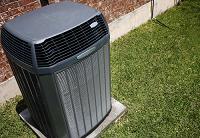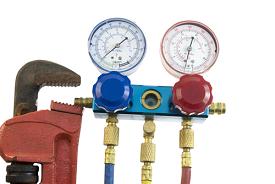4 Facts to Know About Central Air Conditioning
Spring is here and summer is never far behind. Soon it will be time to switch on the air conditioning for the season. But is yours ready? And do you need a new one?
Spring is here and summer is never far behind. Soon it will be time to switch on the air conditioning for the season. But is yours ready? And do you need a new one?
 If you're using a high efficiency A/C in your eastern Medway MA home, that's good. Air conditioning units with a SEER rating of 15 or more, commonly considered "high efficiency," are proven to be significantly better at providing high levels of cool air comfort while consuming less energy than units from just eight or 10 years ago.
If you're using a high efficiency A/C in your eastern Medway MA home, that's good. Air conditioning units with a SEER rating of 15 or more, commonly considered "high efficiency," are proven to be significantly better at providing high levels of cool air comfort while consuming less energy than units from just eight or 10 years ago.
 If your air conditioner is on the ropes and you don't think it will make it through the season, then it would be a smart idea for you to consider replacing it now.
If your air conditioner is on the ropes and you don't think it will make it through the season, then it would be a smart idea for you to consider replacing it now.
 Refrigerants are an essential component of any air conditioning system. They're contained within the A/C coils and ensure that your system functions by helping to dehumidify and cool indoor air.
Refrigerants are an essential component of any air conditioning system. They're contained within the A/C coils and ensure that your system functions by helping to dehumidify and cool indoor air.
Most home air conditioning systems are split systems, meaning they have two constituent units. The outdoor unit houses a condenser that ejects hot air and contains connective refrigerant tubing. The indoor unit, known as the air handler, disperses cool air through the vents in your home. When you're upgrading your HVAC components or installing a new system, you can get either a single-speed or a variable-speed air handler.
Variable-speed air handlers offer several advantages over single-speed systems. Whereas single-speed systems always run on "high," a variable-speed air handler offers a range of settings, which can reduce your power use -- and your utility bills. If you need to cool down your house only a little bit, you can use a lower setting, which draws less energy.